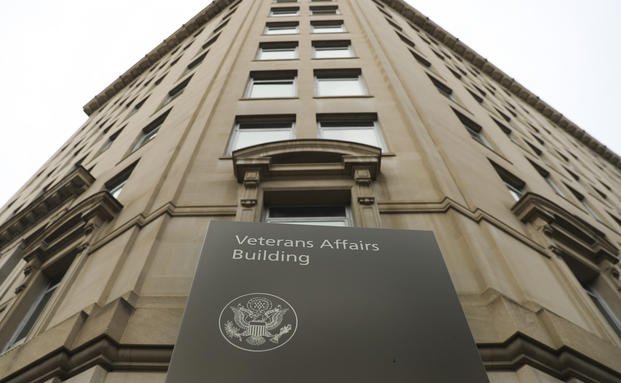The Department of Veterans Affairs mistakenly paid senior career executives $9.7 million in bonuses earlier this month, and now oversight committees in Congress are demanding answers.
VA announced Friday that the erroneous payments to 170 senior executives at its headquarters in Washington, D.C., which were part of PACT Act incentives to foster critical skills at the department, would be rescinded.
Leaders of both the House and Senate veterans affairs committees are seeking information on how the error occurred. They wrote to VA Secretary Denis McDonough Wednesday, criticizing the VA for padding senior executives' paychecks instead of using the money to fill high-demand vacancies.
"VA leadership managing the program clearly did not follow the intended procedures and guardrails that facilities in the field were required to follow," the lawmakers wrote. "We expect a much higher level of due diligence, oversight, and planning at this executive level."
The letter was sent by the chairmen and ranking Republicans on both committees -- Reps. Mike Bost, R-Ill., and Mark Takano, D-Calif., along with Sens. Jon Tester, D-Mont., and Jerry Moran, R-Kan. -- who questioned the use of the PACT Act hiring and retention program to pay the bonuses.
"Congress will pursue additional oversight and more aggressive safeguards on existing and future authorities to ensure this does not happen again," they wrote.
The PACT Act allows the VA to hire or provide incentive pay to employees in hard-to-fill posts, such as human resources, information technology, law enforcement and housekeeping to ensure that it has enough staff to support the influx of veterans eligible for health care and benefits.
A review of the critical skill incentive pay, or CSI, in early September uncovered the erroneous payments, according to VA Press Secretary Terrence Hayes.
"Because of this error, we are canceling all CSI payments made to career senior executives at VA headquarters while we take time to review and strengthen the CSI process," Hayes said in a statement Friday. "As a part of that effort, we will be instituting additional reviews and stronger controls for all CSIs awarded to career senior executives."
Hayes noted that the erroneous payments only accounted for less than 3% of the payouts under the critical skills incentive pay program. More than 97% of recipients were those for whom the authorization was created, resulting in 13,165 payments worth roughly $117 million.
He said no political appointees received payments under the program.
The department has asked the inspector general to look into the issue and make recommendations on oversight of the program, moving forward. Hayes said the department planned to work with those affected to establish a repayment schedule to offset any financial hardship the recoupment may cause.
"We deeply apologize to the employees who have been impacted by this error," Hayes said in the announcement, which was first covered by Military Times.
The lawmakers asked VA to strengthen its internal controls and management to ensure that all payments under the program meet requirements. They also asked for a list of all requests under the CSI authority to date, the guidance issued to those managing the program and the criteria for qualification and the justification used to pay the executives a VA headquarters.
They added that they were "heartened" to learn that more than $117 million has been used as intended under the program, and that those in the field who received those payments will retain them.
-- Patricia Kime can be reached at Patricia.Kime@Military.com.
Related: VA Lost More than $3.5 Billion in Misplaced Spending in Fiscal 2022












